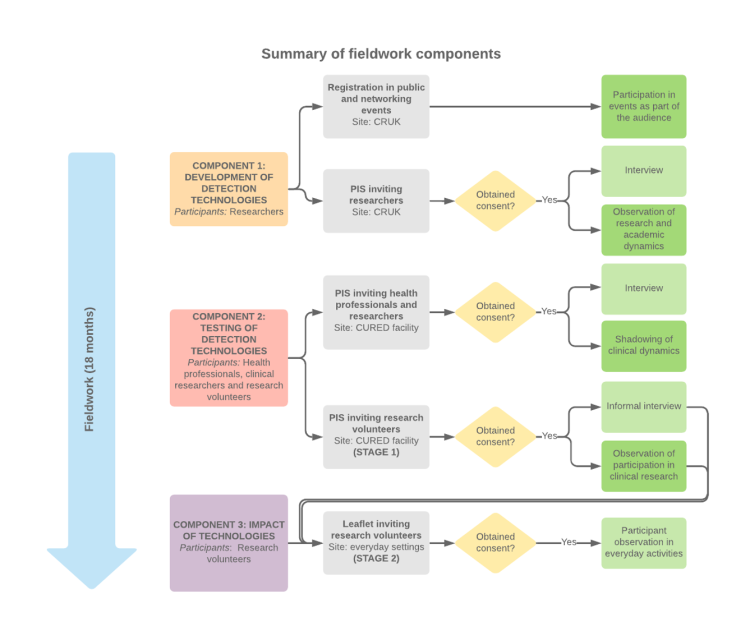I am exploring the practices and views of scientists, health professionals, and research volunteers involved in the field of cancer early detection. To do that, I focus on ‘technologies’: the methods developed to diagnose cancer in people’s bodies before symptoms appear. Examples of technologies are scans, blood tests and biopsies (tumour samples).
With the focus on technologies, I am interested in:
- Looking at how scientists develop these technologies for the early detection of cancer,
- Understanding how health professionals and researchers interact with each other and make decisions when using these technologies in clinical research, and
- Finding out what the impact of using these technologies is for research participants like you.
Why am I doing this study?
I am personally interested in cancer and would like to contribute to the efforts people are making to detect cancer early so that everyone can live longer and better lives free from cancer. The results of this study will offer important insights into the experiences of scientists, health professionals and research participants involved in early detection research. This information may lead to future changes in the ways people like you are invited to participate in research studies, how test results are communicated to you, and how studies are conducted in the future.
Fieldwork
Ethnographic fieldwork started in November 2019 and will end in December 2021. It is divided into three components according to the research site in which data collection takes place.

The first component includes an exploration of how various academic and clinical researchers collaborate to develop technologies.
The second component is currently carried out at a clinical research facility,. It pays attention to the technologies that are applied in clinical research settings. It considers the experiences of both health professionals working in the field, as well as the experiences of research volunteers.
In the third component, the study unpacks the potential impact of detection technologies at a personal and social level. It asks how healthy research volunteers make sense of their participation in clinical research studies in their everyday lives.
Methodological approach
I gather information through the observation of scientific and clinical practices; conversations with researchers, health professionals and research volunteers; participation in research activities; and participant-observation with a subsample of research volunteers.
I employ an anthropological method of analysis, which is broadly defined as an inductive and comparative exercise through which research participants’ experiences and worldviews are understood in their own terms. The systematic collection of these experiences will be put into a wider context, extracting meaning, relevance, and societal impact.
Observing the real-life impact of early cancer detection studies will be invaluable to better understand the social acceptability of early detection technologies; and any relational, psychological, and even socioeconomic changes in research participants’ lives.
This study has been registered on Study Registry, unique identifying number researchregistry6948. You can read more details about the study at www.studyregistry.com.